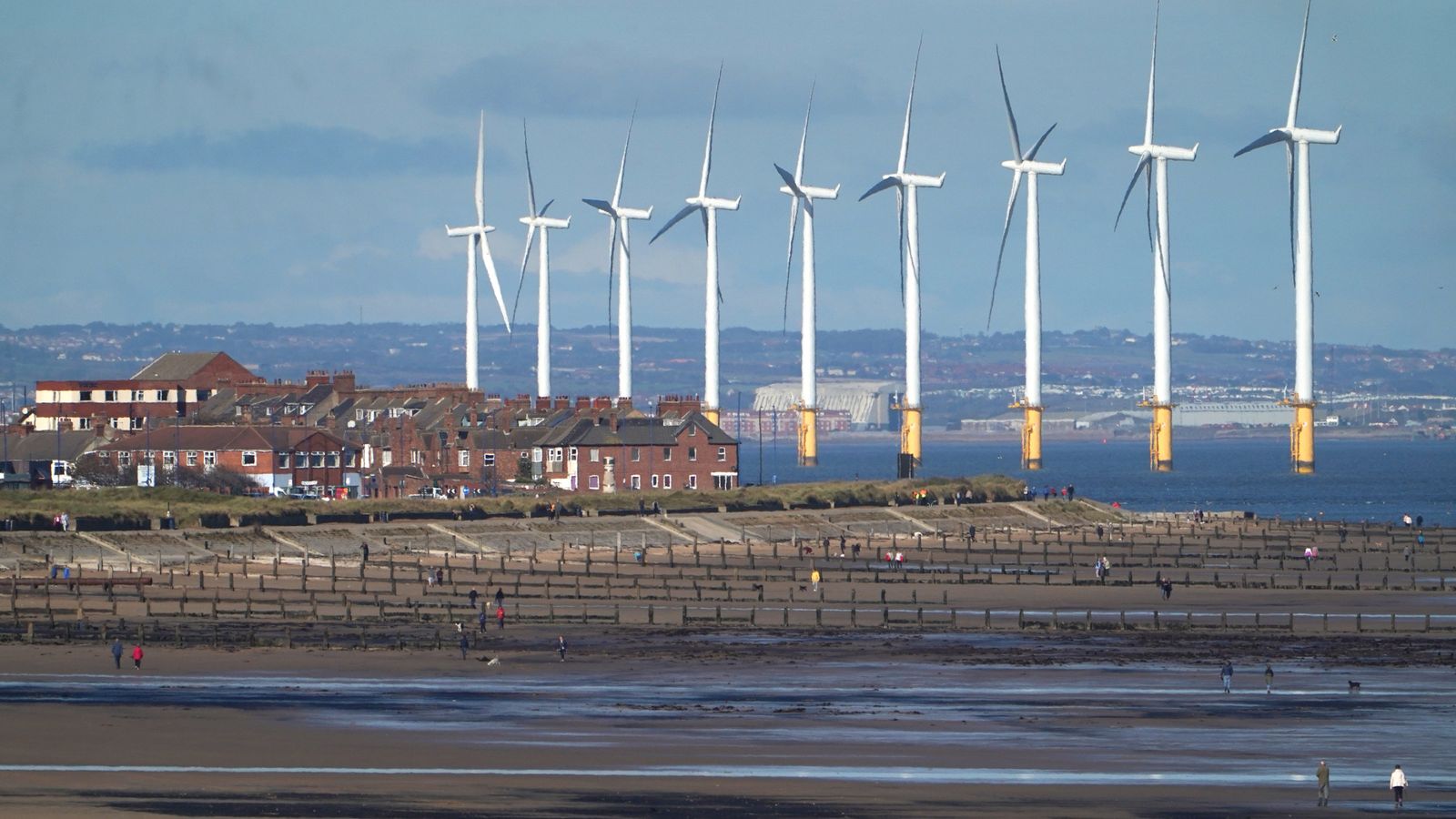Faced with a generational triple challenge of delivering a carbon-neutral economy, energy security, and the multi-trillion-pound investments required to make it happen, the government has draped its green ambitions in red, white and blue.
The energy security plan (official title “Powering Up Britain’) is awash with Union flags. From the agency that will develop atomic energy, Great British Nuclear, to the programme to improve domestic energy efficiency, Great British Insulation, it feels like a patriotic rebranding of existing plans and consultations, with very little new money.
It may be a matter of presentation, but it’s a mistake to view the race to net zero as a parochial issue. This is a global competition for technology, innovation, skills and investment. When it comes to money, Britain already finds itself outmuscled by global competitors.
Last August, US President Joe Biden announced the Inflation Reduction Act (IRA) – a $369bn subsidy plan to secure green industrial investment.
The financial incentives to move factories and development to the US are already turning heads in Britain, with the domestic car industry particularly vulnerable as it transitions to an all-electric future.
The European Union has responded to this huge protectionist move with one of its own. A response that could be worth €250bn in subsidies is being finalised in Brussels.
The UK of course would once have benefitted from collective European muscle flexing, but now it poses yet more competition, and much closer to home.
Faced with two industrial giants engaged in a transatlantic arm-wrestle, the UK has effectively said it cannot compete.
Can being smart make up for being small?
Instead of trying to keep up in a subsidy race, Chancellor Jeremy Hunt is hoping being smarter will make up for being smaller, helped by the financial clout of the City of London.
Writing for The Times today, he is explicit: “Our approach will be different – and better. We are not going toe-to-toe with our friends and allies in some distortive global subsidy race.”
Rather than fight a subsidy battle he thinks he is destined to lose, the chancellor hopes the City, and UK innovation, can deliver the investment, skills and jobs required to transform energy supply and the economy.
He cites planned reforms of insurance regulation as allowing investors to free up some of an estimated £100bn in capital for green industries.
To put that in perspective, the Treasury’s own estimate is that the UK requires £60bn a year to hit domestic net-zero targets, and the chancellor has already cited the same reforms as the resource for science and tech investment.
Please use Chrome browser for a more accessible video player
Read more:
Warning from campaigners over revised net-zero strategy
Government presided over ‘lost decade’ and risks exposing UK to climate threats
There is some state funding for green technologies in this announcement, though very little we did not already know about. Some £20bn will go towards Carbon Capture, Utilisation and Storage (CCUS) projects, a nascent technology still unproven at scale.
Much smaller pots will be aimed at green hydrogen, which has industrial applications that might in time help decarbonise the energy transition’s huge demand for steel, as well as for insulation and setting up Great British Nuclear.
A generous direct subsidy is hard to beat
Yet even with a little state help and a favourable private sector investment environment, a generous direct subsidy is hard to beat. Volkswagen, for example, has already paused its European battery plant plans until it hears whether the EU can match a $10bn subsidy from the US.
The green transition is an opportunity for growth as well as a challenge. As every developed economy turns its attention to the energy transition the Treasury estimates it could be worth £1trn to UK business by 2030.
And there are huge investments required at home, starting with the expansion of the electricity grid to distribute huge volumes of new renewable energy, all of which will require cables to go under or over communities, and through the labyrinthine planning system.
The UK is already importing the green transition
The UK does have advantages in fundamental green industries. Geography has bestowed extensive coastal waters where wind power and expertise flourishes, with floating wind farms the next frontier. Yet the Crown Estate benefits from the licences (through ownership of the seabed) and many of the companies delivering the infrastructure are Scandinavian, demonstrating that the UK is already importing the green transition.
Unless flag-waving becomes a renewable energy source it will take more than patriotism to keep up in this global race.







